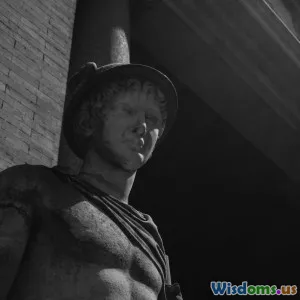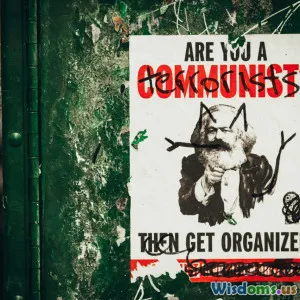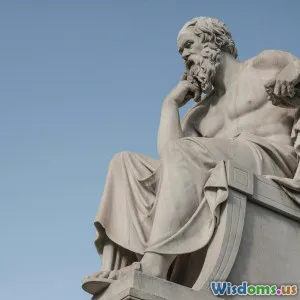
Unveiling the Mysteries of Secret Societies
6 min read Explore the intriguing world of secret societies, their history, purpose, and influence on society. (0 Reviews)
Unveiling the Mysteries of Secret Societies
Secret societies have long been a source of intrigue and speculation, capturing the imagination of people across cultures and generations. From the Freemasons to the Knights Templar, these organizations have often been shrouded in secrecy, leading to a plethora of myths and misconceptions. This article aims to peel back the layers of mystery surrounding secret societies, exploring their origins, functions, and enduring influence in the modern world.
The Historical Context of Secret Societies
Origins and Purpose
Secret societies have existed since ancient times, often forming around shared beliefs, philosophies, or goals. The earliest known secret society is thought to be the Mysteries of Eleusis, an ancient Greek ritualistic group that held secret rites dedicated to the goddess Demeter. Their practices were designed to foster a deeper understanding of life and the afterlife, illustrating how secret societies can serve both spiritual and communal functions.
As societies evolved, so did these organizations. Many were formed during times of political or social upheaval, providing a platform for like-minded individuals to unite for a common cause. For example, the Illuminati, founded in the late 18th century, aimed to promote Enlightenment ideals and challenge the oppressive power structures of the time.
Notable Secret Societies Throughout History
- Freemasons: Established in the late 16th to early 17th century, the Freemasons are one of the most well-known secret societies. They have been accused of wielding significant political power, although members often emphasize their commitment to charity and moral uprightness.
- Skull and Bones: Founded at Yale University in 1832, this society has produced a number of influential American leaders. Its secretive nature and elite membership have led to numerous conspiracy theories regarding its influence on U.S. politics.
- Rosicrucians: Emerging in the 17th century, the Rosicrucians claimed to possess esoteric knowledge and mystical insights. Their teachings combine elements of mysticism, alchemy, and philosophy.
The Functions of Secret Societies
Social Networking and Support
One of the primary functions of secret societies is to provide members with a sense of community and support. This can be particularly important in times of social or political strife, where individuals might feel isolated or disenfranchised. Membership often comes with a sense of belonging, shared values, and collective identity.
Influence on Political and Social Movements
Throughout history, many secret societies have played a role in significant political and social movements. For instance, the Freemasons were instrumental in the American Revolution, with many founding fathers being members. Such organizations can serve as a breeding ground for ideas and strategies that influence broader societal change.
Preservation of Knowledge
Secret societies often pride themselves on the preservation and dissemination of knowledge. This can range from esoteric teachings to practical skills. For example, the Bavarian Illuminati sought to promote rational thought and secular governance, reflecting the Enlightenment ideals of their time.
The Modern Perception of Secret Societies
Myths and Misconceptions
In contemporary society, secret societies are often associated with conspiracy theories and a sense of foreboding. This perception is fueled by popular culture, including films and literature that portray these organizations as malicious or manipulative. However, many members of these societies argue that their primary goals are philanthropic and focused on personal development.
The Role of Technology
The rise of the internet and social media has also transformed the landscape of secret societies. Information that was once closely guarded is now more accessible, leading to a democratization of knowledge. However, this has also resulted in the spread of misinformation and conspiracy theories about the true nature of these organizations.
Conclusion
Secret societies continue to be a fascinating aspect of human history and culture. While their secretive nature often breeds suspicion and speculation, understanding their historical context and functions can provide valuable insights into their role in society. As we navigate an increasingly complex world, the lessons and legacies of these organizations may offer guidance on community building, social change, and the pursuit of knowledge. By unearthing the mysteries of secret societies, we can appreciate their contributions to society while remaining critical of the narratives that surround them.
Rate the Post
User Reviews
Popular Posts





















